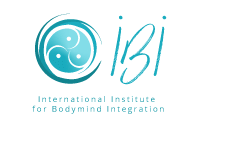What types of stress do we distinguish?
Positive stress (eustress)
Not all forms of stress are unhealthy (see image). So-called “eustress” as a result of a positive event in your life such as a family celebration, the birth of a child or the start of a journey keep life “exciting” and “challenging” in a healthy way. A slight increase in the heart rate can then be felt with the presence of an enhanced focus and a mild increase in the amount of stress hormones. A certain amount of stress is necessary to achieve good performance …
Negative stress
Negative stress situations are caused by major events (eg loss, health problems) but also repetitive everyday experiences (eg traffic congestion) that continue to respond to you. As a result, you also lose your sleep at night and get up even more tired. This is how a negative spiral starts: the vicious circle of stress. Protective relationships can then sometimes help return the body’s stress response systems to baseline, giving the nervous system time to recover from potentially harmful effects.
Chronic stress
If a stress situation is intense, repetitive or latent (eg the loss of a loved one, night noise, financial problems), this can lead to a situation where things are no longer congested.
The stress can then become toxic. When people feel stressed, their body responds by releasing chemicals (adrenaline, norepinephrine, cortisol, and others) into the blood. The body “thinks” for a moment that it is about survival. Both adrenaline and cortisol have a direct effect on the body. These chemicals give people more energy and strength, which can be a good thing if their stress is caused by acute physical danger, but it can also be a bad thing if the stress persists. People who are under great amounts of stress can become tired and sick and no longer concentrate or think clearly. Sometimes they suffer from nervous breakdowns or burnout.
How do you know you are suffering from chronic stress?
Symptoms of chronic stress include poor sleep, irritability, anxiety, a tendency to withdraw, decreased appetite or just an increased craving for sweetness, moodiness and fatigue. You are also more sensitive to pain. In this sense, stress makes many ailments and ailments worse, including headaches and migraines, abdominal pain, back pain and fibromyalgia, a form of rheumatism. Furthermore, stress can revive past psychological problems, such as addiction, anxiety and depression.

What effect does chronic stress have on our body?
Firstly, chronic stress increases the risk of cardiovascular problems. For example, the production of cholesterol increases. About 2/3 of cholesterol is made by the liver for energy and repairing damaged cells. The liver continues to produce cholesterol during prolonged stress. First, the fat balance is disrupted and the blood pressure increased, which can lead to arteriosclerosis and thrombosis, and thus an increased risk of a heart or cerebral infarction. The regulation of blood sugar and the immune system can also be disturbed. Too much stress also increases the risk of obesity and osteoporosis. However, that stress would increase the risk of cancer has never been proven in scientific research to date. With chronic stress, however, your immune system remains vulnerable and this makes you more sensitive to various diseases.
Why do we sleep less well during periods of stress?
Because your body produces hormones during stress that ensure that the heart starts pumping more blood through the body and that more energy (glucose) is available in the brain. In other words, the body is preparing to fight or run! This could be running from a dangerous dog or meeting a tight deadline. One of the stress hormones, cortisol, should be low in the first half of the night in order to sleep. Too many make it difficult to fall asleep or wake up easily at night. Because chronic sleep deprivation in turn leads to more stress, you risk further ending up in a vicious circle.
What can you do against too much stress and tension? Appropriate interventions.
- Live healthier, with more attention to sleep, exercise, relaxation and a healthy diet.
- Mindfulness training, breathing or relaxation techniques usually have a good effect.
- Psychological counseling and psychotherapy: The therapist will look with you at the factors that cause the stress to rise too much and what physical and emotional reactions this causes. You can also work with awareness: How do you feel the tension in your body? What thoughts are circulating? Do you have enough support from others? Or do you feel like you are constantly in the firing line. Do major events need to be processed? Do unfinished feelings from the past still affect you? Sometimes it helps to set your boundaries better. You may have to say “no” more often to your environment or avoid certain stimuli or situations or protect you better. The moment you become aware of what is happening in your system, you can exercise more control over yourself and the situation.
- In body-oriented therapy and bodywork, you can also work directly with your autonomic nervous system through touch and the release of chronic muscle tension. The therapist can practice this with you, for example through role plays, in visual work, in drama or with the aid of music, or through physical exercises in which you learn to sense your limits and indicate them appropriately. Through these practical exercises you can discover that you have choices in your behavior and that you can maintain your individuality in stressful situations, so that you can find more peace and balance.
- Traditional sleeping medications or sedatives can help overcome a difficult period, but are not a permanent solution.
- Keep in mind that it takes time and patience to tackle chronic stress: after all, it is not easy to change your lifestyle permanently and structurally. Your doctor is a good point of contact for initial advice and further help.
Did you like this article? Share it in:





